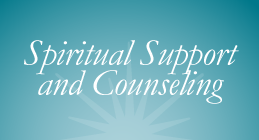Master Spiritual Counseling
Master of Arts in Spiritual Counseling 2017
Other Masters offered, click here. Español
The Master of Science in Spiritual Counseling explores the frontier of psychology's interfaces with spirituality and counseling in the spiritual realm. It deepens the student's training in high level research activities, through the updating of the theoretical-methodological and empirical knowledge of his discipline. He achieves the acquisition of the specialized knowledge that allows him to perform effectively in the Spiritual Counseling with the orientation of his own religion. It is a curriculum for those who pursue mastery in their life and to offer support in this area to others. Excellence is assessed in terms of reality that demonstrates the skills and competencies of spiritual counseling, as experienced through soul-centered and spiritual-awareness education and discerning its value. An attitude of unconditional love is recognized as the ultimate competition, and the adoption of positive measures to create greater success and satisfaction in all aspects of their lives.
These study programs are managed entirely online and therefore students from all over the world will be able to do so from their country of residence. Participants should have a knowledge of English at a school level or their willingness to perfect it. Although some of the documents to be studied may appear in English, all instruction, exercises and exams will be taught in Spanish. Each student will be assigned an academic liaison assistant with the Academic Staff, who will assist him at all times by email and in Spanish.
General Composition of the Master (42 credits): Study Plan = 30 academic credits + 12 credits Research, project and thesis methodology. + Additional courses of 3 credits each, if not completed, can be selected from other modules at Tau Divinity University (TDU) if necessary, or validated from previous studies and / or experiences. This selection must be approved by the institution in the formal admission process, and will be the one that reflects the grade transcript (transcript of courses taken and approved).
ADMISSION REQUIREMENTS: Graduated with a bachelor's degree from a recognized university (or TDU graduate) in a field related to the area under study. Internet connection.
Areas of employment or exits: This program is aimed at students with a bachelor's degree or bachelor degree in related areas, who yearn to be cemented in their preparation in the practice of spiritual counseling with a wide vision for counseling, holistic therapies of mind-body-spirit healing. Teaching, instructors, coaches and guides for personal and spiritual growth, ministry, missions, church service or as ministers, catechists, pastoralists or chaplains to name a few, and other areas of public and private service, as well as preparing to continue doctoral studies. The work options are unlimited. Graduates are able to work as advisor, counselor, counselor, therapist; conducting workshops and therapeutic groups, hospice work, etc., as well as establishing a private practice as a spiritual guide.
Graduation Requirements:
Students with a Bachelor degree who have been selected in the admission process, to enter this masters program, must take and approve the following courses, and the master's thesis:
500 Introducction to Psychology & Developmental Psychology
501 Theories of Personality & Ethics in Psychology
502 Transpersonal Psychology & Spiritual Psychology
503 Spirituality and Care of the Soul in Medicine
504 Psychological Interventions Strategies and Prevention
505 General Psychopathology
506 Education and Advice Family
507 Emotional Intelligence & Coaching
508 Learning,Memory and Cognition
509 Basic Skills in Therapeutic Relationship: Counseling
510 Intervention in Traumatic and Crisis Situations
511 Basic Dimensions of Integral Human Development
M599 Master´s Thesis or Dissertation
In each case the STUDY PLAN in the admission process is adjusted by the Academic Staff based on a broad spectrum of study interests and background of each student.
The academic work of the student consists of developing each Independent Research Course, based on bibliographic research, online resources, methodological guidelines of the program and other resources available for research. The final exam of each course consists of writing and approving the Final Investigation Report of 35 pages without counting preliminary or annex pages, original and authentic. The Research Report represents the final result of the research process of each course and must be structured and composed in accordance with the format required by the University.
The thesis or final project, will be undertaken prior approval of the proposal by the Academic Staff of the University, preferably no more than 100 pages without preliminary pages or attachments. Never less than 70 pages, original and authentic.
All presentations will be made via the Internet.
CERTIFICATION: The degrees and certifications conferred by TDU are valuable and necessary credentials to accredit your education and academic record, either through our programs or through the transfer of credits from other institutions. Each of the titles comes completely in English as they are issued in the United States of America. Each title delivered has a TDU registration number in addition to being duly notarized and apostilled in the State of Florida which proves its validity and legality in all aspects. Consular legalization is only for countries that are not signatories to the Hague Convention. It has all the respective stamps and the signatures of the legal representatives of the University. These certificates are sent by certified courier to the address indicated by the graduate.
INVESTMENT and method of payment: click here.
Spanish Language.
Duration: Two months for each independent research course and six months minimum for the work of doctoral thesis. It may be earlier depending on the dedication to the study.
Contact, click here.
GRADING SYSTEM:
A = 100, Outstanding - 4.00 points
A- = 95, Very Good - 3.67 points
B+ = 90, High Good - 3.33 points
B = 85, Regular Good - 3.00 points
B- = 80, Low Good - 2.67 points
C+ = High Regular - 2.33 points
C = 70, Regular - 2.00 points
C- = 65, Low Regular 1.67 points
D = 60, Deficient - 1.33 points
D- = 55, Very Deficient - 1.00 points
F = 50, Failed- 0.00 points
Honors Program:
Students that have maintained high grades from 3.71, deserve the graduation with honors. Cum Laude, Magna Cum Laude, Suma Cum Laude:
3.91-4.00 GPA, Summa Cum Laude
3.81-3.90 GPA, Magna Cum Laude
3.71-3.80 GPA, Cum Laude
CURRICULUM OVERVIEW:
600 Introduction to Psychology & developmental Psychology
Human behavior foundations according to the most important theories that conform contemporary psychology. Personality formation: temperament and character. Knowledge of fundamental concepts related to socio-emotional and cognitive development of human being, and their behavior patterns in performing of different roles in society.
601 Theories of Personality & Ethics in Psychology
Personality and individual differences. Theoretical approaches. Empirical dimensions. Actual problems of personality. Fundamental processes of personality. Experimental studies. Ethics: Philosophical Foundations. Anthropological Metaphysics. Ethics. The Good. Values. Principles. Virtue. Humans. Rationality. Historicity. Coincidence. Freedom. Action. Philosophy of moral action. Responsibility. Justice. Law. Moral Law. Scope and cases. Professional Code and related laws with ethics and philosophy.
602 Transpersonal Psychology & Spiritual Psychology
Humanist Psychology: Integration of person-centered models. Jung theory and its contributions to Contemporary Psychotherapy.
Gestalt, an effective technique for change. The care of the soul from the Religion Psychology point of view. Therapeutic mourning and patient emotional recovery.
Consulting Skills: PNL intervention, guidance and support. Transactional Analysis and integration into the transpersonal model. Foundations, art and therapy of spiritual psychology, focused on faith and beliefs based work.
603 Spirituality and Care of the Soul in Medicine
Care of the Soul, its symptoms within other obsessions, addictions and loss of life meaning. The soul, its dimension and mystery. Light and shadows.
Care of the Soul in daily life. Spiritual practice and psychological depth in spirituality. Care of the Soul in the world and its importance for the psychological counseling and the spiritual guidance.
604 Psychological Interventions Strategies and Prevention
Disciplinary and professional environment of Health Psychology. Psychology contributions in health promotion and the intervention with persons that have developed different diseases, especially of a chronic character. To analyze and understand the psychological approach in the sanitary concept, as well as the evaluation and intervention techniques which allow to improve the quality of life of patients, as well as its prognosis, from the point of view of the spiritual and or theological coordination and assistance.
605 General Psychopathology
Psychopathology: existing concepts and models. Anomalies in basic psychological processes. Biological needs and addictions. Psychological disorders (Psychopathologies), according to the proposed classifications from scientific environment. Empirical theory and evidence in respect of different disorders studied. Variable Psychopathologies. Diagnostic criteria of mental disorders and its interface with the spiritual and/or theological help.
606 Education and Family Advice
Conceptualization and historical development of the family institution. The family institution: threats and actual problems. The Violence in family environment. Family and community education and competence of tutors: Educational styles. The curriculum of the home: parents-children relationship and family basic skills development. Parents training. Design and development of training programs for parents: the family life routine. Action Scheduling and socio-educative intervention in the family environment. Building networks of family-school-community. Counseling and family mediation.
607 Emotional Intelligence & Coaching
Emotional Intelligence nature. Applied emotional intelligence. Development of emotional intelligence. Social intelligence. Emotional leadership.
Coaching concepts and foundations. Coaching process. Coaching objectives and results. Individual factors. Group factors and social skills. Coaching and spiritual, personal and professional development.
608 Learning, Memory and Cognition
Development of main and more complex cognitive processes. Topics of human knowledge such as reasoning, problem resolution and decision making. Acquisition of basic general knowledge. Diversity in cognitive, emotional and affective processes in which learning is based. Processes, strategies and development and learning mechanisms of people throughout their life.
509 Basic Skills in Therapeutic Relationship: Counseling
The objectives of this course are: To provide a practical theoretical basis to know and understand what are the basic skills that favor professional careers in therapists. Know and know how to use communication skills, active listening, facilitate problem solving, as well as generalization of results. Favor therapists attitudes such as unconditional support (respect for different ways of being), the ability to empathize (not only to respect and understand what the other person feels, but to make patients feel understood and validated ) And the ability to be congruent (communicating what we feel from truthfulness).
510 Intervention in Traumatic and Crisis Situations
General aspects of trauma and crisis situations. Types of trauma. Psychological damage and emotional sequelae in response to traumatic and crisis situations. Factors of vulnerability and protection. Types of victims: direct and indirect. Frequency of trauma in the population and epidemiological factors. Psychological evaluation in traumatic and crisis situations. Types and levels of intervention in traumatic and crisis situations. Overcoming trauma. Relapse prevention and follow-up.
511 Basic Dimensions of Integral Human Development
Overview. Neurophysiological Development. Cognitive Development, Intelligence and Creativity. Psychological, Affective and Social Development. Moral, Ethical and Values Development. Vocational and Professional Development. Spiritual Development. Conclusions.
M599 Master´s Thesis or Dissertation
The Master´s thesis is a work based on the scientific research methodology, carefully argued, of approximately some 70-100 pages. An original argument must be presented, which has been carefully documented from primary and/or secondary sources. The Thesis must have an important component of research
and a focus related to the arts and the science of the specialty being studie. It must be in writing, under the guidance of the University´s Academic Staff. As a final phase of the Master is drawing near, the thesis gives the student the opportunity to demonstrate his experience in the selected research area, which must be performed according to the University methodology and standards, to be opportunely provided.
ADMISSION PROCEDURE:
To access the ADMISSION PROCEDURE, click here. The inscriptions are open.
Other Masters offered, click here.

Content copyright. Tau Divinity University (TDU). All rights reserved. Florida, United States.
